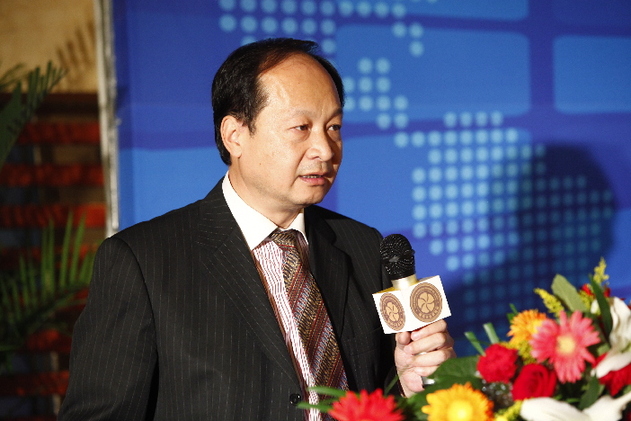Chinese economist: Eurozone, U.S. woes threaten political crisis
- By Matt Velker
 0 Comment(s)
0 Comment(s) Print
Print E-mail
China.org.cn, September 14, 2011
E-mail
China.org.cn, September 14, 2011
|
|
|
Ding Yifan, deputy director at the Institute of World Development of the Development Research Center of the State Council, warns entrepreneurs on Tuesday about growing political instability in struggling Western economies. [Photo/Xu Xun] |
Eurozone debt woes and fears of a double-dip U.S. recession are posed to trigger political crisis in the West as developed economies run out of stimulus options and enter a period of slow growth and high unemployment, a Chinese economist said Tuesday. [Full coverage: Summer Davos 2011]
Rock-bottom benchmark interest rates and mounting debt have taken monetary and fiscal stimulus off the table for developed countries, ensuring stubbornly high unemployment and stagnant growth, Ding Yifan, deputy director at the Institute of World Development of the Development Research Center of the State Council, told a conference in Dalian Tuesday.
"The situation in the West isn't just a policy or economic crisis," Ding said, speaking to entrepreneurs gathered for the Summer Davos forum, which begins Wednesday. "It has in fact already stirred up a massive political crisis."
The Tea Party, which draws on America's revolutionary roots, represents a fundamental mistrust of the government, which the people see as having bailed out the bad guys who caused the crisis, Ding said.
This crisis of confidence has and will continue to be exacerbated by inevitable cuts to social welfare programs as the U.S. and European governments struggle to curb budget deficits in a sluggish economy, he said.
These austerity measures have already unleashed violence on the streets in England, and similar trends are beginning to appear in the U.S., Ding said.
Philadelphia, the birthplace of the American Revolution, imposed a curfew for minors last week in an attempt to stymie violence, he said, and police in historically liberal San Francisco last weekend cut off cellphone service to four downtown stations in an attempt to prevent a protest over a police shooting.
"When the Chinese government moved to establish control after unrest in Urumqi in 2009, the U.S. criticized China. Now the U.S. government is using these same methods," Ding said. "A large wave of social unrest is now expanding through Europe and the United States. This is what we're worried about."






